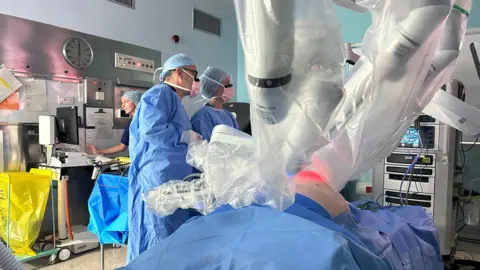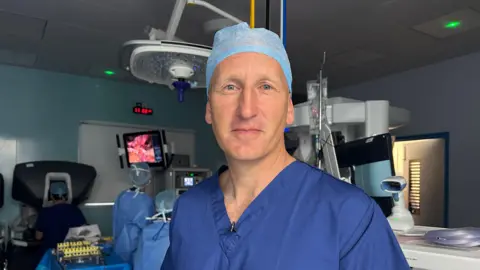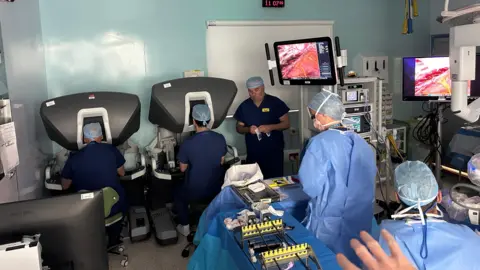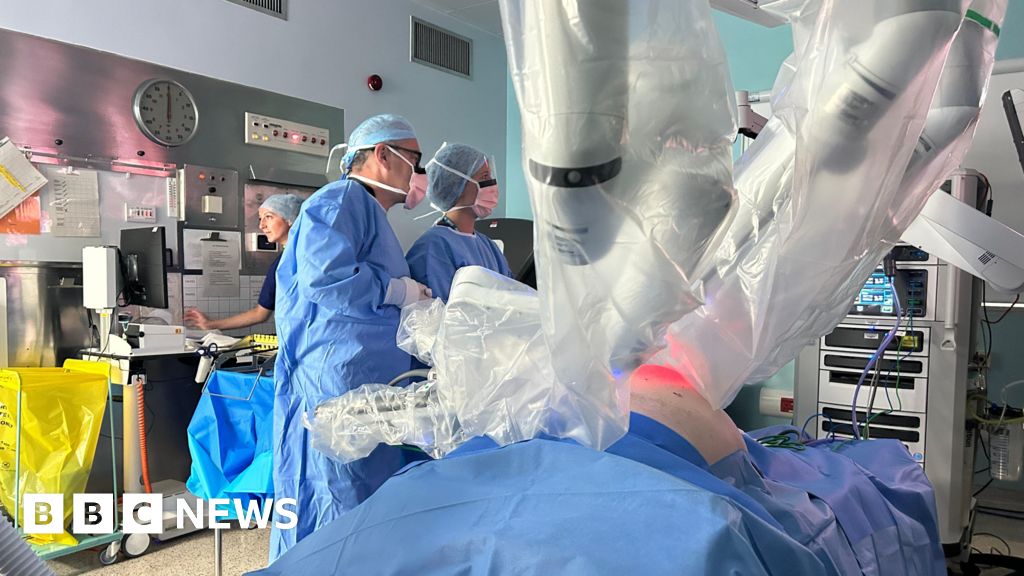Anna VarleSouth West health correspondent
 BBC
BBC
The robot is out of action one day a week due to a shortage of space for other operations
A surgical robot is being underused because of a lack of operating theatres at a Devon hospital.
North Devon District Hospital installed the robot in 2023 to perform a variety of surgeries including complex hernia operations and colorectal surgery.
However the hospital’s clinical director of surgery, Prof David Sanders, said it was out of use 15% of the time to free up the operating theatre for other procedures.
A Department of Health and Social Care (DHSC) spokesperson said it was “committed” to bringing robotic surgery to “millions of patients” as part of plans to cut waiting times.
Prof Sanders said: “We could be using this robot every day of the week, but, at the moment, there’s one day a week it’s not used because the theatres are needed for other operations.
“We have a massive mismatch in the waiting lists which are very large, the available surgeons to do the procedures and the limiting factor is the space to do it in.”
‘Crumbling hospitals’
Work to rebuild North Devon District Hospital as part of the government’s new hospital programme is not due to start until 2035.
The DHSC said: “The NHS estate we inherited is crumbling but we have already allocated £1bn to address the backlog of critical NHS maintenance and repairs to help ensure hospitals are safe and sustainable.
“We have set out an honest, realistic timetable to deliver all hospital building schemes and as part of our Plan for Change, we are focussing on delivering sustainable improvements through both investment and reform.”

Prof David Sanders says robotic surgery drastically improves recovery times
The hospital became the first centre in the South West to introduce robotic technology for abdominal wall surgery, placing it among only a handful of hospitals nationwide offering the cutting-edge procedure.
Prof Sanders said robotic surgery “reduced recovery times, improved patient comfort and freed up valuable hospital beds”.
The robot was used to perform more complex repairs to ventral hernias – weaknesses or openings in the abdominal wall – turning a five-day hospital stay into a same day procedure.
Instead of a large scar, patients end up with three very small scars, Prof Sanders said.

Training surgeons to perform abdominal surgery with the robot is one of the trust’s priorities
“This innovation is not just about surgical excellence.
“It’s about rethinking how we deliver care, making it more precise, safer, and better for everyone.”
The surgical team has used the robot for 370 abdominal wall cases since it was introduced in summer 2023.
It was also used to train surgeons in robotic abdominal wall surgery, with surgeons from around the world spending up to a year at the hospital to gain experience.
“Ultimately the robot offers great treatment for patients and the more people we can get trained in the techniques the better,” Prof Sanders said.


